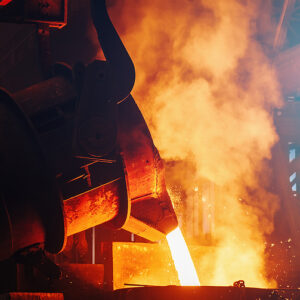In 1856, when McWane Ductile produced its first iron pipe in Phillipsburg, N.J. – just across the river from Easton, Pa. – Franklin Pierce was president, and the transcontinental railroad was still a dozen years away.
It was the beginning of an economic revolution for the region. As one of Phillipsburg’s first major employers, the McWane foundry was crucial in attracting the rail infrastructure that allowed other, later arrivals to thrive. The industrial powerhouse Bethlehem Steel was founded just across the river in 1899, and industrial drill manufacturer Ingersoll Rand opened a Phillipsburg factory in 1903.
More than a century later, another economic evolution has occurred, shifting to more service industry jobs and away from manufacturing. Ingersoll Rand left for Ireland in 2000, and Bethlehem Steel went bankrupt in 2001.
Some argue the days when a manufacturing company could play a central role in a community’s economy are over.
But McWane has remained, continuing to serve as an economic anchor for Phillipsburg and a model for a different vision of job creation.
Nearly 170 years after its founding, McWane continues to offer local workers that level of historic security. “As one of the area’s largest employers and economic contributors, we are committed to finding ways to help young people here build a bright future,” Keith Mallet, the general manager of the McWane Ductile’s Phillipsburg plant, told DVJournal. To that end, the company engages in educational arrangements with local schools.
McWane Ductile has established “partnerships with the Warren County Technical School as well as Phillipsburg High School for nearly a decade,” Mallet said.
Phillipsburg High School said the company awards scholarships to its students entering into higher education, including trade schools.
“They usually award it to at least three students, sometimes more,” said an official in the school’s guidance office. The scholarships are well-known and sought-after by the students, she said.
Laura Clark, a spokeswoman for parent company McWane Inc., said, “Manufacturing and skilled trade sectors are critical industries to our economy.”
“At McWane, we know the challenges of the 21st century will require companies like us to invest in the next generation of technical and trades workforce,” she said. “That’s why we started our skilled trades scholarship program in 2021, to open the door for people looking to forge careers in industries like ours.
“And that vision of opportunity permeates through all of our businesses.”
Sean McGeough, an engineering instructor at Warren County Technical School, has previously been part of the school’s partnership with McWane. “They are a great company to work with,” he told DVJournal. “They were very supportive of the Engineering students at WCTS. My students did a research presentation about their company, testing and evaluating process, and one of their cast iron manufacturing processes. The partnership was beneficial to our students.”
In addition to its New Jersey plant, the company has locations in Utah and Ohio. The ductile iron it produces is the metal standard for potable water infrastructure due to its high damage tolerance and its fatigue resistance. The company also produces gaskets, coatings, and other industrial materials.
The company’s location, less than half a mile from the Delaware River, is not insignificant. For more than 400 years, the river has been a hub for commerce and transportation in the Mid-Atlantic. Situated strategically at the heart of colonial America, it nurtured Philadelphia and Trenton and gave rise to a broad network of canals and railroads along which towns flourished, among them Phillipsburg.
The town of about 15,000 rapidly grew from a small agricultural village to a regional manufacturing hub in the mid-19th century. That was largely due to what is now McWane Ductile, whose foundry there produced its first pipe five years before the town was formally incorporated in 1861.
Small businesses like McWane were critical to forming and cementing the American middle class. Long regarded as a defining feature of U.S. economic and social life, the middle class from the late 18th century onward offered workers a precious middle ground between the poverty to which most of humanity was accustomed and the riches that, for nearly all of history, had been unattainable.
The early U.S.’s friendliness to industry and business allowed a thriving manufacturing and production economy to flourish, especially in the Northeast, throughout the 19th century. For many generations, and as late as the 1960s, a manufacturing job was seen as the key to stable, prosperous employment.
In that vein, Mallet said the company is focused on ensuring that the rising generation of American workers and laborers is set up for success.
“We are proud to be a part of a culture that prioritizes investments that give kids new opportunities and ensures they have the training and education needed to succeed,” he said.


